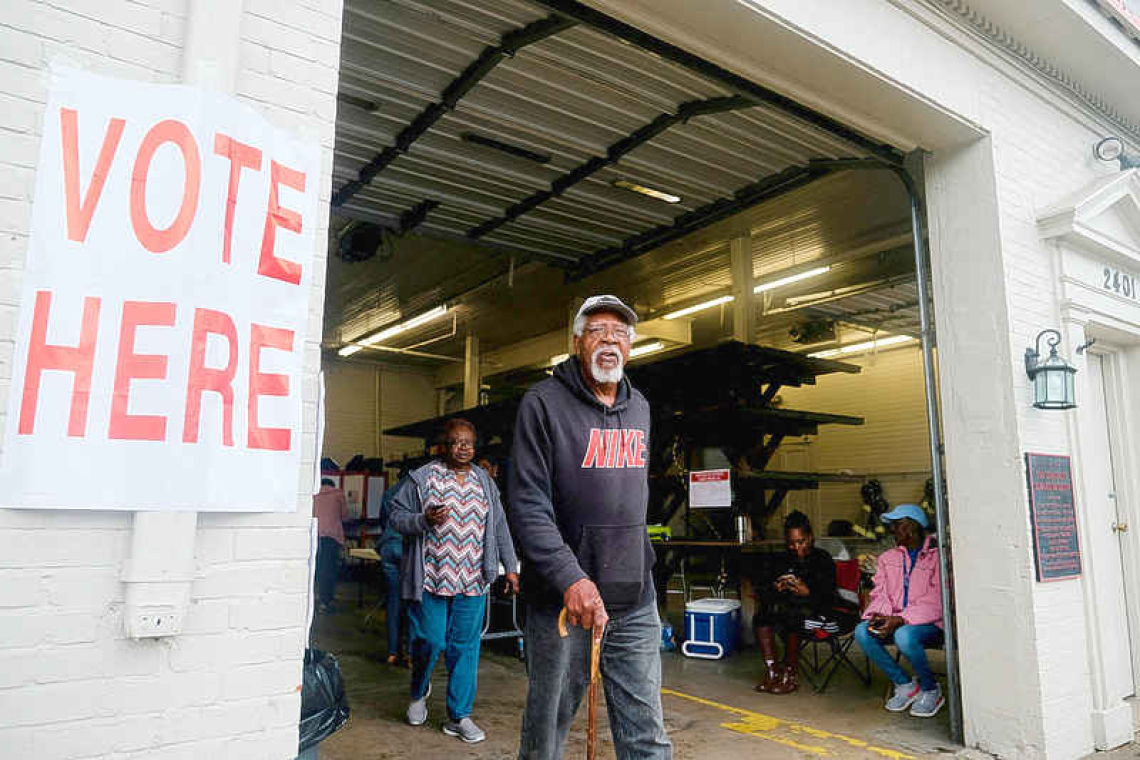WASHINGTON--The U.S. Supreme Court on Thursday handed a major victory to Black voters who challenged a Republican-drawn electoral map in Alabama, finding the state violated a landmark law prohibiting racial discrimination in voting and paving the way for a second congressional district with a Black majority or close to it.
The 5-4 ruling authored by Chief Justice John Roberts affirmed a lower court's decision that the map diluted the voting power of Black Alabamians, running afoul of a bedrock federal civil rights law, the 1965 Voting Rights Act. Roberts was joined by fellow conservative Justice Brett Kavanaugh and the court's three liberals, Sonia Sotomayor, Elena Kagan and Ketanji Brown Jackson. With Thursday's ruling, the Supreme Court elected not to further roll back protections contained in the Voting Rights Act as it had done in two major rulings in the past decade.
The decision centered upon Section 2 of the Voting Rights Act, a provision aimed at countering measures that result in racial bias in voting even absent racist intent. "We find Alabama's new approach to (Section 2) compelling neither in theory nor in practice," Roberts wrote. "We accordingly decline to recast our (Section 2) case law as Alabama requests." At issue was the map approved in 2021 by the Republican-controlled state legislature setting the boundaries of Alabama's seven U.S. House of Representatives districts. The map featured one majority-Black district, with six majority-white districts, even though Black people comprised 27% of Alabama's population.
The ruling on Thursday affirmed the lower court's order that Alabama configure a second House district where Black voters could hold a "a voting-age majority or something quite close to it." That marked a shift from an emergency 5-4 ruling the court issued last year that let Alabama use the disputed map for the 2022 U.S. congressional elections in which Republicans seized control of the House from Democrats. The new congressional map, expected to be in place for the 2024 elections, could boost Democratic efforts to regain a majority in the House, which Republicans now control by a narrow 222-212 margin.
U.S. Attorney General Merrick Garland hailed the ruling, saying it "rejects efforts to further erode fundamental voting rights protections, and preserves the principle that in the United States, all eligible voters must be able to exercise their constitutional right to vote free from discrimination based on their race." The Voting Rights Act was passed at a time when Southern states including Alabama enforced policies blocking Black people from casting ballots. Nearly six decades later, race remains a contentious issue in American politics and society more broadly. Conservative states and groups had previously succeeded in prodding the Supreme Court to limit the Voting Rights Act's scope. Its 2013 ruling in another Alabama case struck down a key part that determined which states with histories of racial discrimination needed federal approval to change voting laws. In a 2021 ruling endorsing Republican-backed Arizona voting restrictions, the justices made it harder to prove violations under Section 2.







